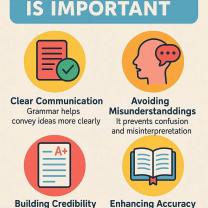Why do ESL teachers need to teach pronunciation?
Teaching pronunciation is a crucial component of ESL (English as a Second Language) instruction, and there are several reasons why ESL teachers need to prioritize this aspect of language learning:
Communication Clarity: Accurate pronunciation is essential for clear and effective communication. ESL learners may have excellent vocabulary and grammar skills, but if their pronunciation is poor, it can hinder their ability to convey their ideas and be understood by native speakers.
Comprehension: Teaching pronunciation helps ESL learners understand spoken English more effectively. When they are able to recognize and produce English sounds accurately, they can better comprehend native speakers and engage in meaningful conversations.
Reducing Misunderstandings: Mispronunciations can lead to misunderstandings, even if the grammar and vocabulary are correct. Teaching pronunciation can help minimize these communication breakdowns and enhance overall understanding.
Building Confidence: Improved pronunciation can boost learners' confidence in speaking English. When they feel more assured in their ability to pronounce words and phrases correctly, they are more likely to participate in conversations and practice their language skills.
Professional and Academic Success: In professional and academic settings, clear pronunciation is often critical. It can affect job opportunities, academic performance, and the ability to engage effectively in meetings, presentations, and discussions.
Cultural Sensitivity: Proper pronunciation is tied to cultural nuances and can contribute to cultural sensitivity and awareness. It helps learners understand the subtleties and variations in English accents and dialects.
Accent Reduction: ESL teachers can help learners reduce strong accents that might impede their communication in English-speaking environments. While accents can be charming and unique, reducing impediments to effective communication is essential.
Enhanced Listening Skills: Teaching pronunciation also improves listening skills. As learners become more attuned to the sounds of English, they are better able to comprehend spoken language, even in fast-paced or challenging situations.
Social Integration: Improved pronunciation makes it easier for ESL learners to integrate into English-speaking communities, build social relationships, and adapt to their new linguistic environment.
Increased Intelligibility: Teaching pronunciation ensures that ESL learners can be understood not only by native speakers but also by other non-native English speakers. This is particularly important in a globalized world where English serves as a common means of communication among people from diverse linguistic backgrounds.
In summary, teaching pronunciation is essential for ESL teachers because it underpins effective communication, bolsters comprehension, reduces misunderstandings, builds confidence, and plays a vital role in the academic and professional success of ESL learners. Pronunciation is a critical aspect of language learning that enhances the overall language proficiency and cultural awareness of ESL students.
The Importance of Teaching Pronunciation for ESL Teachers
Pronunciation, often overlooked, is a crucial aspect of language learning, and teaching it effectively is essential for ESL teachers. Clear and intelligible pronunciation is the foundation of effective communication, significantly impacting students' confidence and self-esteem. Neglecting pronunciation instruction can lead to misunderstandings, frustration, and limited opportunities for ESL learners.
Pronunciation Instruction in ESL: Why It Matters
Effective Communication: Pronunciation is the cornerstone of comprehensible speech. Without clear pronunciation, even the most grammatically correct and vocabulary-rich sentences can be difficult to understand.
Confidence and Self-Esteem: ESL learners who struggle with pronunciation may feel embarrassed or self-conscious, hindering their willingness to communicate and participate in social interactions. Improving pronunciation can boost their confidence and self-esteem.
Improved Listening Comprehension: Pronunciation instruction enhances listening comprehension skills, as students learn to distinguish between similar sounds and recognize correct pronunciation patterns.
Enhanced Reading Skills: Clear pronunciation aids in reading comprehension, as students develop a better understanding of letter-sound relationships and can decode unfamiliar words more accurately.
Reduced Accent: While accents are natural and expected, improving pronunciation can help ESL learners reduce their accent and make their speech more intelligible to native speakers.
Enhancing Language Learning with Effective Pronunciation Teaching
Early and Continuous Instruction: Introduce pronunciation from the very beginning and incorporate it throughout the curriculum. Regular practice and exposure are key to improving pronunciation.
Focus on Individual Needs: Assess each student's pronunciation strengths and weaknesses and tailor instruction accordingly. Address specific sounds and patterns that pose challenges for the learner.
Utilize Diverse Teaching Methods: Employ a variety of teaching techniques, such as minimal pair drills, tongue twisters, and auditory discrimination exercises, to make pronunciation practice engaging and effective.
Provide Audio and Visual Resources: Supplement instruction with audio recordings of native speakers, pronunciation guides, and visual aids to help students visualize the correct articulation of sounds.
Encourage Peer Feedback: Encourage students to practice pronunciation with each other and provide constructive feedback in a supportive environment.
Promote Self-Monitoring and Practice: Encourage students to monitor their own pronunciation, record themselves speaking, and practice regularly outside of class.
Celebrate Progress and Achievements: Recognize and celebrate students' improvements in pronunciation, boosting their motivation and confidence.
Effective pronunciation instruction is an integral part of ESL teaching. By incorporating it into the curriculum, using diverse methods, and providing individualized support, ESL teachers can empower their students to communicate effectively, gain confidence, and enhance their overall language learning experience.











